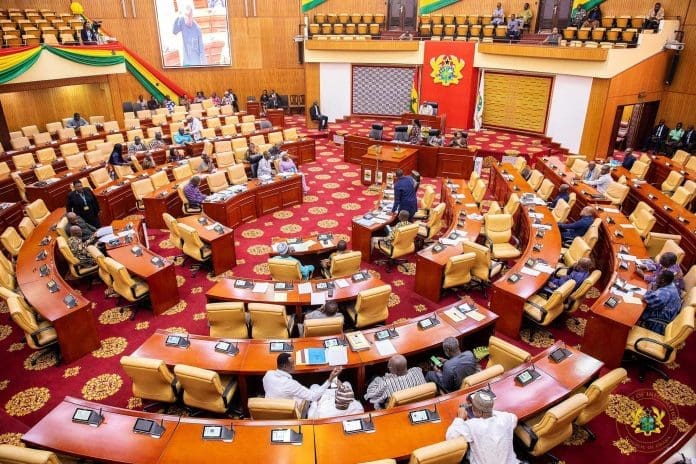Haruna Iddrisu, the veteran Tamale South MP and current Education Minister, has proposed that Parliament dedicate specific sitting days for backbenchers to dominate legislative debate, arguing that meaningful parliamentary reform would make Ghanaians smile. His October 22 floor statement reflected frustrations with a legislative culture where frontbenchers and ministers monopolize discussions while rank and file MPs remain largely silent observers.
The proposal isn’t just about giving backbenchers speaking time. Iddrisu stressed that members who get the floor should offer constructive, alternative solutions rather than simple commentary, suggesting he’s as concerned with quality as quantity of backbench participation. That distinction matters because opening the floor to unprepared MPs could transform parliamentary debate into rambling complaint sessions rather than substantive policy discussions.
Iddrisu’s critique of Parliament went deeper than procedural concerns. He argued that Ghana’s problems stem partly from Parliament’s failure to exercise its oversight responsibilities, pointing specifically to the country’s debt crisis as evidence. His choice of example was pointed, referencing former President Nana Akufo-Addo lamenting excessive borrowing in Brussels after the Debt Exchange Program. According to Iddrisu, Parliament failed to limit the President or remind him he had borrowing powers but shouldn’t use them excessively.
That’s a remarkable admission from someone who served as Minority Leader during much of the period when that debt accumulated. It acknowledges that opposition MPs, despite raising concerns, ultimately lacked the institutional mechanisms or political will to prevent what they now describe as fiscal recklessness. The question his proposal raises is whether giving backbenchers more speaking time would actually change that dynamic, or whether the problem runs deeper than parliamentary procedure.
The seasoned legislator, who has served continuously since the 4th Parliament through the current 8th Parliament, also challenged his colleagues to embrace learning and master the House’s standing orders. He specifically criticized MPs for failing to read committee reports before they come to the floor for debate, suggesting that many members simply don’t do the homework necessary for informed participation.
His call for backbenchers to read reports before commenting might sound basic, but it highlights a chronic problem in Ghana’s Parliament. Committee reports often contain detailed analysis, expert testimony, and policy recommendations that should inform legislative decisions. When MPs debate without reading these documents, they’re essentially improvising opinions rather than engaging with substantive evidence.
What makes this proposal interesting is its source. Iddrisu now serves as Education Minister, technically making him a frontbencher in the current administration. Yet he’s advocating for structural changes that would limit ministerial dominance of parliamentary debate. That suggests either genuine commitment to parliamentary reform or political positioning for a future when his party might return to opposition and benefit from stronger backbench voices.
The timing of his statement, delivered when Parliament reconvened after a recess, gave it added weight. These opening sessions typically set the tone for parliamentary business, and using that moment to advocate for procedural reforms signals Iddrisu believes this issue deserves serious attention.
His assertion that “the day the Parliament of Ghana will sit right, the Ghanaian people will smile” frames parliamentary dysfunction as a national problem rather than an internal House matter. It’s a bold claim that implies weak legislative oversight directly contributes to policy failures affecting ordinary citizens’ lives.
Whether Parliament will actually implement dedicated backbencher days remains uncertain. The proposal would require buy-in from leadership, including the Speaker and both majority and minority caucuses. Frontbenchers who currently dominate debates might resist surrendering floor time, while backbenchers themselves would need to demonstrate they’re prepared to use that time constructively.
The broader question Iddrisu’s proposal raises is whether Ghana’s parliamentary problems stem from insufficient speaking opportunities or from deeper institutional weaknesses. Giving backbenchers more microphone time won’t automatically produce better oversight if the underlying power dynamics, party discipline structures, and resource constraints remain unchanged.
Still, his call for Parliament to “sit right” acknowledges something important that often gets lost in discussions of Ghana’s governance challenges. The legislature exists as a check on executive power, and when that check fails, citizens pay the price through policy mistakes that could have been prevented. Whether dedicated backbencher debate days would strengthen that check or simply add noise to parliamentary proceedings is the question his colleagues must now answer.
Source: newsghana.com.gh











